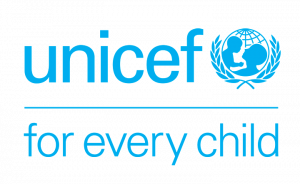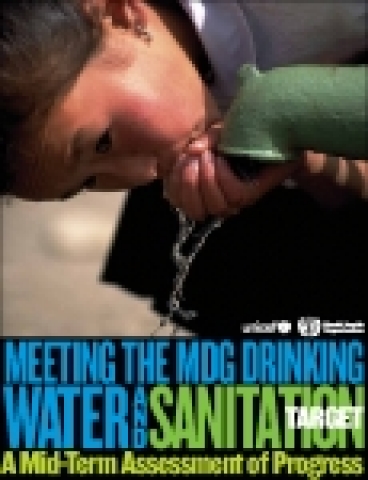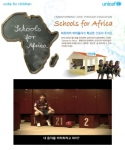전세계에 불고 있는 조용한 위기, 안전한 식수와 기초위생설비 부족
나쁜 건강상태와 빈곤의 악순환은 인류의 개발 노력을 저해한다
가장 고통받는 것은 어린이라고 세계보건기구/유엔아동기금이 발표
2004년 8월 26일, 뉴욕/제네바 - 세계보건기구와 유니세프는 이 날 공동보고서를 통해 전세계인구의 60%인 26억 명은 기초위생설비 없이 살아가고 있으며, 10억 이상의 사람들은 안전한 식수를 얻지 못한 채 생활하고 있다고 발표하였다.
2015년까지 안전한 식수와 위생시설에 관한 밀레니엄개발 목표를 달성하기 위한 중간 평가 형식의 이번 보고서는 각 나라별의 진전상황, 1990년 대비 2002년 상황 비교 등을 자세히 나타내고 있다.
이 보고서는 안전한 식수와 위생시설의 세계 평균 보급률은 점차 개선되고 있으나, 사하라사막 이남 아프리카는 오히려 상황이 악화되고 있다고 밝히면서 개선을 위해서는 전세계가 노력에 박차를 가해야 한다고 주장했다. 또한 지금부터 2015년까지 지금 이상의 노력을 경주해야 하며, 특히 빈곤계층과 농촌지역 등 국가(지역)의 평균치에 밑도는 집단에 특별한 관심을 두어야 한다고 말했다.
- 기타 자세한 자료는 아래 참조해 주시기 바랍니다.
World Facing Silent Emergency As Billions Struggle Without Clean Water And Basic Sanitation
- WHO/UNICEF report warns that vicious cycle of ill-health and poverty could defeat human development efforts, with children first to suffer
NEW YORK/GENEVA, 26 August 2004 - More than 2.6 billion people – over 40 per cent of the world's population – do not have basic sanitation, and more than one billion people still use unsafe sources of drinking water, warns a major report released today by WHO (the World Health Organization) and UNICEF.
Entitled Meeting the Millennium Development Goals drinking water and sanitation target - A mid-term assessment of progress, the report details the progress of individual countries, regions, and the world as a whole between the MDG baseline year of 1990 and the half-way mark of 2002. It makes two significant predictions on reaching the 2015 goals , based on progress to date:
· The global sanitation target will be missed by a staggering half a billion people – most of them in rural Africa and Asia – allowing waste and disease to spread, killing millions of children and leaving millions more on the brink of survival.
· The world is on track to meet the drinking water target, but population growth may outstrip improvements, with 800 million people still drinking unsafe water by 2015.
This severe human and economic toll could be prevented by closing the gap between urban and rural populations and by providing simple hygiene education, say UNICEF and WHO.
The agencies warned that a global trend towards urbanization is marginalising the rural poor and putting huge strain on basic services in cities. As a result, families living in rural villages and urban slums are being trapped in a cycle of ill-health and poverty. Children are always the first to suffer from the burden of disease caused by dirty water and poor hygiene, while the wider impact of unhygienic environments drags back economic progress and erodes good governance.
“Around the world millions of children are being born into a silent emergency of simple needs,” says Carol Bellamy, UNICEF’s Executive Director. “The growing disparity between the haves and the have nots in terms of access to basic services is killing around 4000 children every day and underlies many more of the 10 million child deaths each year. We have to act now to close this gap or the death toll will certainly rise."
"Water and sanitation are among the most important determinants of public health. They are amongst the top of WHO's list of components of primary health care. Wherever people achieve reliable access to safe drinking-water and adequate sanitation they have won a major battle against a wide range of diseases." says WHO Director-General Dr LEE Jong-wook.
Developing regions of the world, such as sub-Saharan Africa, are most at risk. But the report also highlights some worrying trends in the industrialised regions , where coverage figures for clean water and basic sanitation facilities are estimated to have decreased by 2 per cent between 1990 and 2002. In the former Soviet Union, only 83 per cent had access to adequate sanitation facilities. With economic and population pressures growing, these percentages could decrease.
The consequences of inaction today are severe, according to WHO and UNICEF. Diarrhoeal disease currently takes the lives of 1.8 million people each year – most of them children under five - with millions more left permanently debilitated. Over 40 billion work hours are lost in Africa to the need to fetch drinking water. And many children, particularly girls, are prevented from going to school for want of latrines, squandering their intellectual and economic potential.
Reversing this trend and moving towards universal coverage for water and sanitation will take more than money, said Bellamy and Lee. National policies based on the principle of “some for all” rather than “all for some” have been the key to improvements in many countries. And at the local level, resources have to be retargeted to include the poorest communities, with local government and the private sector co-operating to bring affordable solutions.
“To meet the 2015 targets, countries need to create the political will and resources to serve a billion new urban dwellers, and reduce by almost 1 billion the number of rural dwellers without access to adequate sanitation facilities – otherwise we risk leaving millions, if not billions, out of the development process,” says Dr Lee.
WHO and UNICEF say the report, which is the first in a series looking at progress in water and sanitation coverage, should be a wake up call to all global leaders. Every country still has work to do to eliminate disparities in basic services and the data shows clearly how that can be done before the MGD deadline of 2015.
There are also very encouraging signs. Great gains in water and sanitation coverage have been made against considerable odds in many countries. This progress came as a direct result of political prioritisation and a drive to find locally effective solutions.
“This report is important because it proves that significant improvements are possible in a short space of time, even in the poorest countries.” says Ms Bellamy. “By identifying trends now, and committing to course corrections, we have a real opportunity to ensure that by 2015 these basic essentials of life are available to all.”
※ Eight Millennium Development Goals were agreed by the Member States of the United Nations at the Millennium Summit in 2000. The targets state that the proportion of people worldwide not having access to an improved water source, and the proportion of people worldwide not having access to adequate sanitation facilities, should be halved between the baseline year of 1990 and 2015
* * *
유니세프한국위원회 개요
유니세프한국위원회는 한국에서 유니세프를 대표하는 기관(비영리법인)으로서 한국위원회의 주된 임무는 세계 어린이를 위해 국내에서 세계 어린이 현황과 유니세프 활동을 널리 알려 어린이돕기 기금을 조성하는 것입니다. 또한, 아동의 권리 홍보 및 모유수유 권장, 세계교육 등의 사업을 통해 어린이 권리를 신장하는 활동도 함께 펼쳐 나갑니다. 유니세프한국위원회가 국내에서 펼치는 모든 활동은 유니세프가 전세계적으로 펼치고 있는 어린이 구호활동을 지지하기 위한 것입니다.
웹사이트: http://www.unicef.or.kr




![방탄소년단의 글로벌 팬미팅 BTS 5TH MUSTER [MAGIC SHOP]에서 진행된 유니세프 부스 방탄소년단의 글로벌 팬미팅 BTS 5TH MUSTER [MAGIC SHOP]에서 진행된 유니세프 부스](https://file.newswire.co.kr/data/datafile2/thumb/2019/10/3554238800_20191024170202_4476783960.jpg)
